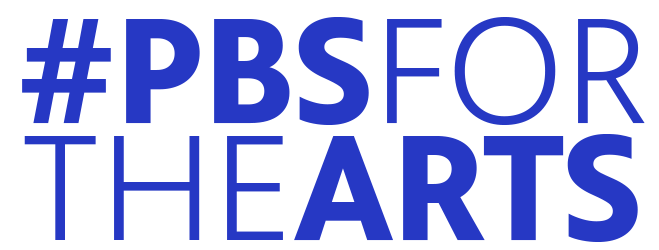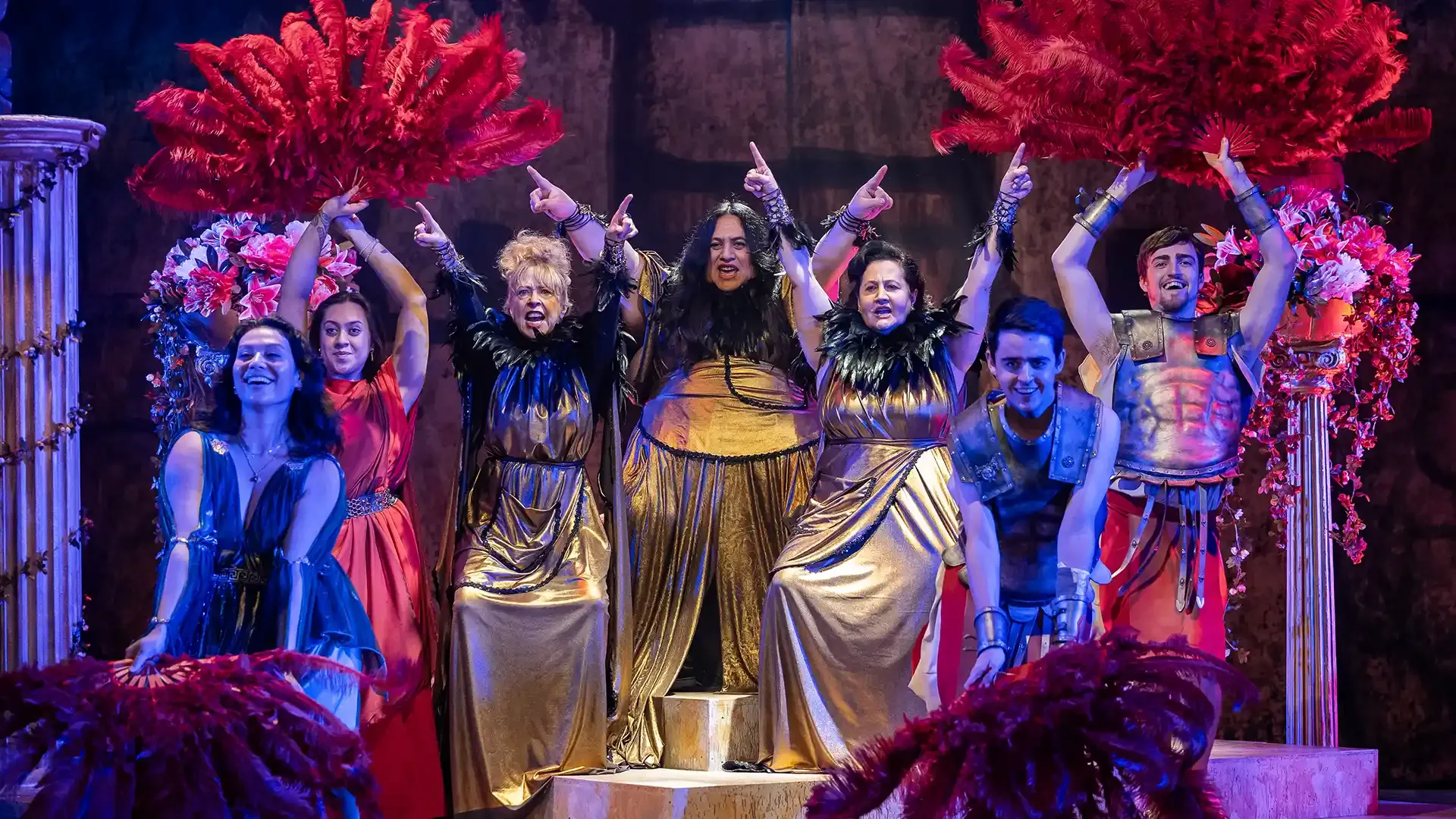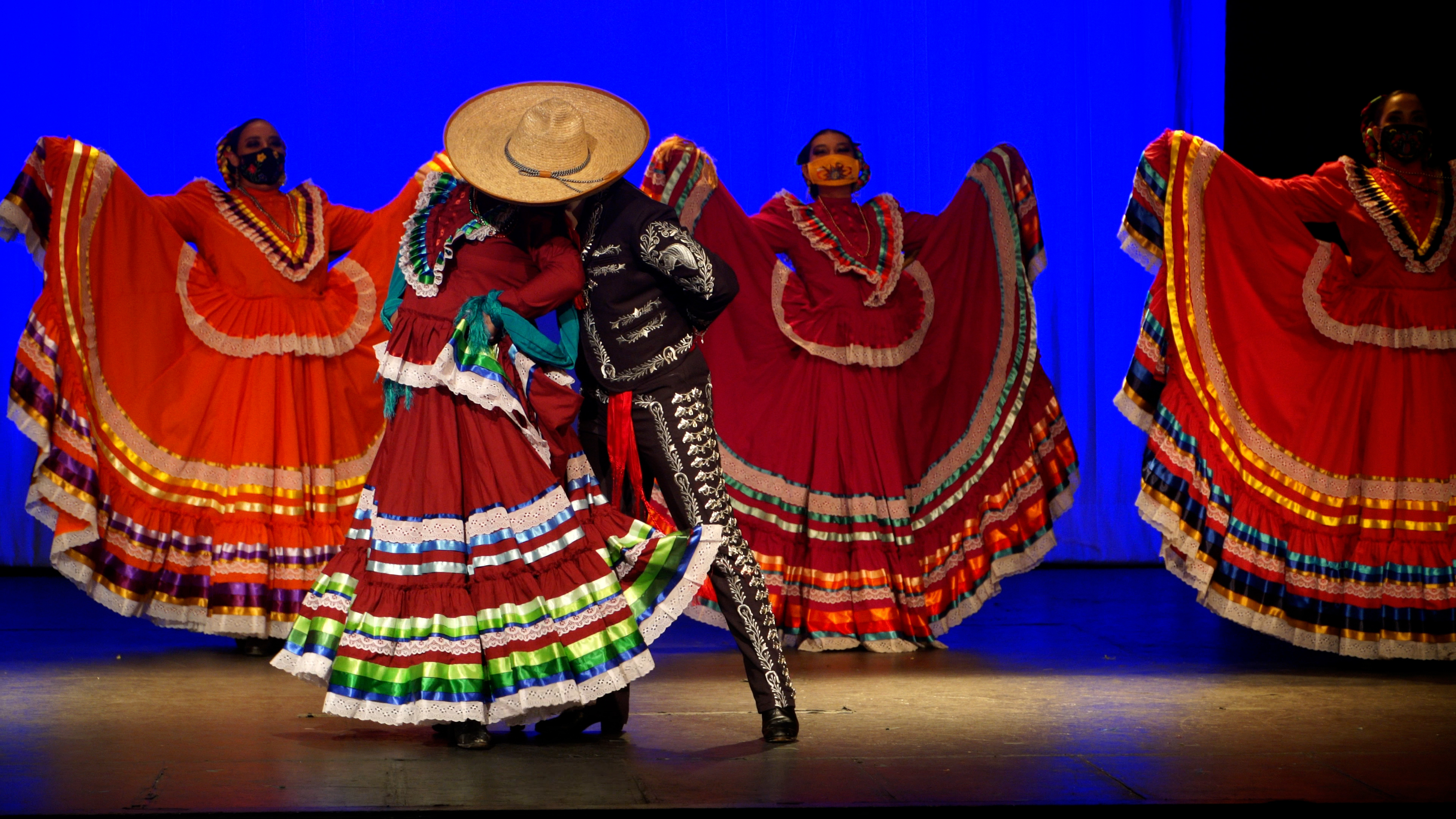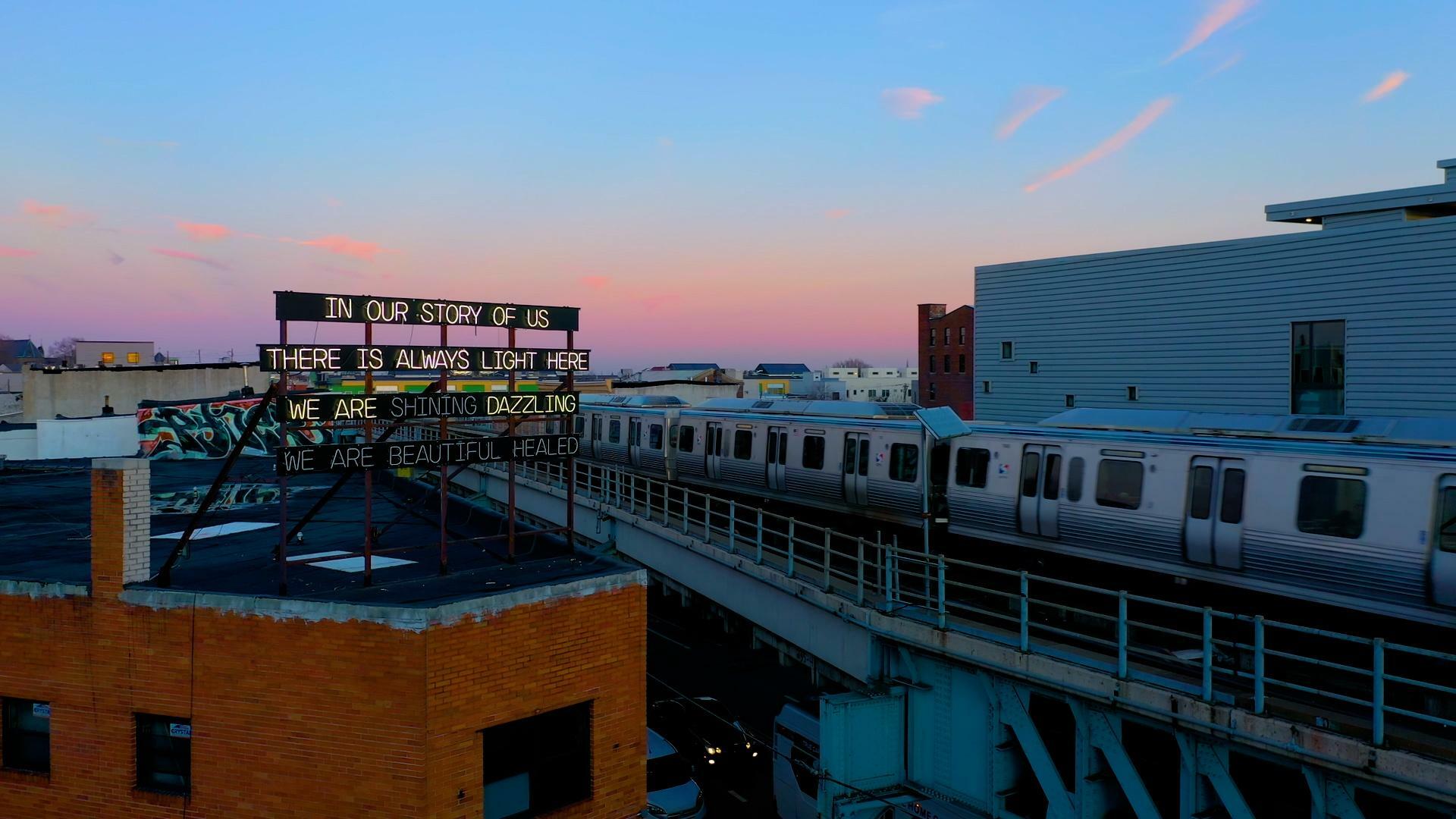Dancer Angela Buccini-Butch moved to New York with a mission to create a supportive space for eccentric characters and acrobatic performers. For more than ten years, The Muse has served as a creative event space in Brooklyn that houses its professional performance troupe, ABCirque, and circus school. ABCirque celebrates the capabilities of humans with an ode to traditional circus acts and more contemporary circus skills. “We do all sorts of shows, events, different types of specialty acts, the whole spectrum of [what] makes you wonder how it's possible,” she says.
When the pandemic hit, The Muse was stalled, and Buccini-Butch was forced to stay creative at home. In an interview with #PBSForTheArts, she shares how she was inspired to learn a new skill and how The Muse can get back on track.
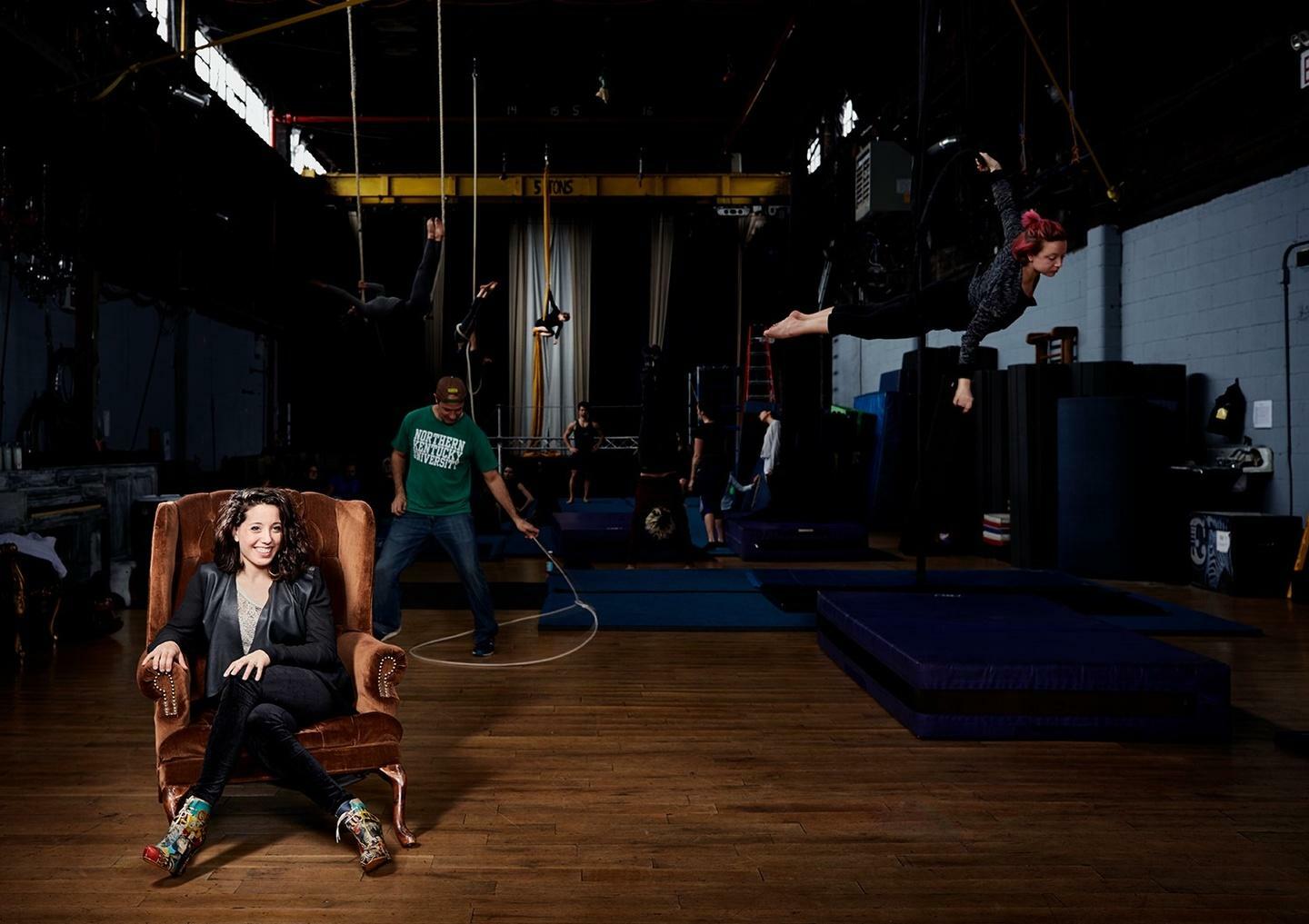
How did you arrive in New York as a dancer and transition into circus acrobatics?
Angela Buccini-Butch: I started off as a dancer and danced professionally for roughly 23 years. When I moved to New York City, I found myself at Elizabeth Streb's place in Williamsburg, Brooklyn, and they had a flying trapeze school. Their work is a bit of where dance meets stunt work and these big heavy-duty apparatuses. While I was training there, I appreciated how much trust and communication was involved. It was very different from dance, in the sense that we had to really work as a team to keep each other safe. From there, my career literally took off. I started getting all sorts of jobs because I was a dancer who also had this other skill set.
How did you decide to start The Muse?
It was [created] out of the necessity for a rehearsal space where people could not feel judged. They could train together and elevate skills, mostly for creation, that’s why it’s called “The Muse.” One of the things that was hardest for me in the dance world in New York City was how competitive it was. I loved circus, the skill and ability to communicate and be honest and genuine. When you walk into [dance] auditions, they're judging you for what you look like right away. Behaviors in the room are really intense and no sense of unity. I really wanted to combat that. Then [The Muse] just grew and grew and grew. Before the pandemic, we were the largest circus school in New York and post-pandemic, it's a different story.
Can you tell me how you reopened last year, and how you’ve been sustaining The Muse?
[In 2020], we were able to start doing kids camps again. Our space is a big open warehouse, but it's one of the only spaces that has the height requirement that's required for a lot of our skill sets. Last year, we didn't know if that would be the end of us. This year we are doing our kid camps again and we have some workshops. We're doing very limited programming and trying to get shows remounted. We're a little bit more hopeful.
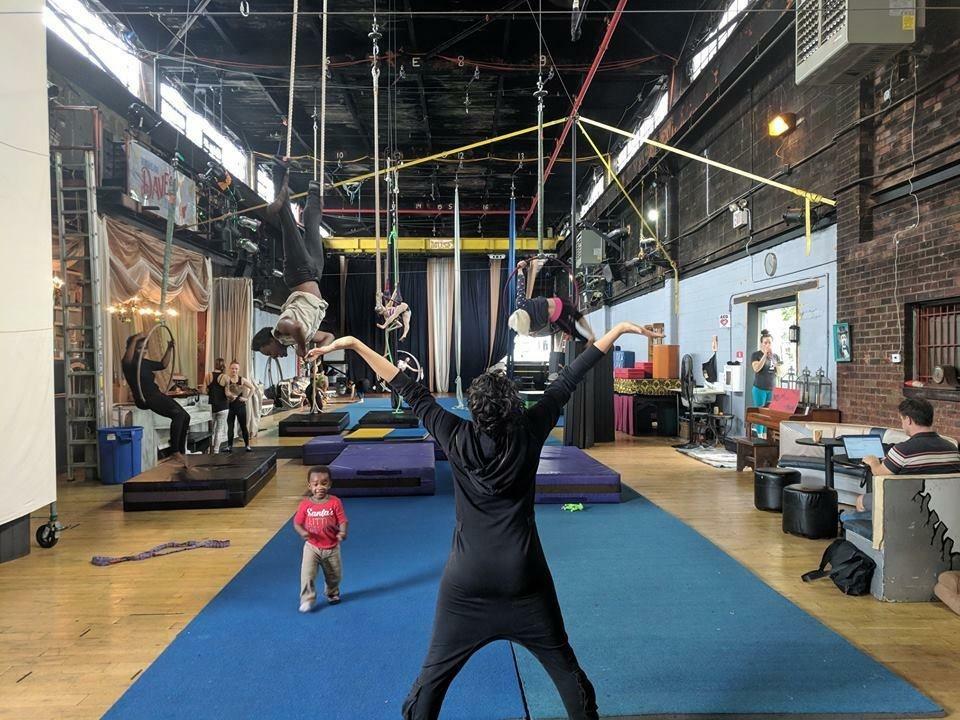
Given the camaraderie and unity you envisioned with The Muse, how have you coped with the difficulties of the past year?
A lot of the people who I felt closest to were the core company members who moved away and left New York. Work was drying up for everybody. [One performer] was a German wheel artist and he was the only German wheel, high-level artist in New York. It was really devastating. We do a lot of nontraditional harness work, wall running, bungee, and a butterfly lift system so we can do flying effects. We have an aerial track within our space. We have capabilities that bridge between circus and dance in a lot of ways that make us unique.
How do we focus and emphasize on who's left, what's left, what more can we do? It's been great this summer to rebirth a few shows. It felt like a huge return to self and seeing an audience smile again and just come together to experience something. They need to feel a human connection. I think there's no better way than performance.
You did produce a video that featured your bottle walking called Off the Bottle. How did that come about?
At the very top of the pandemic, one of my friends fell out of communication and we couldn't find him. We found out that he was hospitalized with COVID. I brought some posters to our friend’s hospital and handed them to the doctors. [I had] this idea of creating this bottle walking act or video as a metaphor for how fragile life is right now and trying to balance on the bottle, which is a very fragile thing when the system isn't set up to support you. I worked closely with a writer and a composer all through Zoom. I started learning the skill in my living room, and then I reached out to a videographer friend and said, can we make this happen? I really wanted to say something. I don't know another way to exist. I feel like we must use the tools we have to tell the stories of the time.
Support your local PBS station in our mission to inspire, enrich, and educate.
Has that always kind of been part of your creative mission with shows at The Muse?
Definitely. Sometimes there is a big political or social push behind the show's mission, and sometimes it's just about feeling pure joy and forgetting things for a moment and getting into that sense of awe and wonder. We hope to provoke conversations through connection and use that platform to say something. When it is a physical experience that people are connecting with, it's easier to open up conversations.
Do you have ideas for once things get back on track?
I've been working with five artists at the space, plus a composer, and we've been creating a show called “Was Me Is Me.” It's about anything that has happened in anyone's life that has caused a massive transformation, what you've gone through, and who you've become because of it. One of those numbers featured the sway pole apparatus and people dancing. We're hoping to reenter into a creative process soon and relaunch that show in the fall.
Note: This interview has been condensed and edited for clarity.
The Muse Productions produced its ABCirque and Play show on September 26, 2021. Its upcoming ABCirque show will be on October 31, 2021. Workshops and circus classes are available through its Patreon.

The best of PBS, straight to your inbox.
Be the first to know about what to watch, exclusive previews, and updates from PBS.
